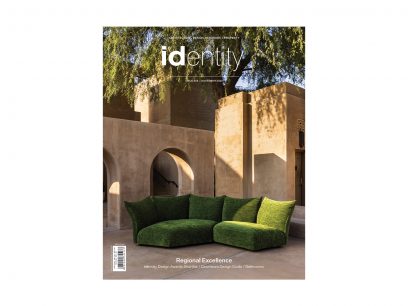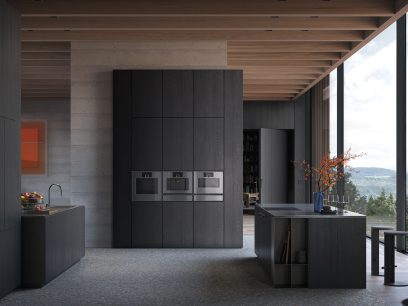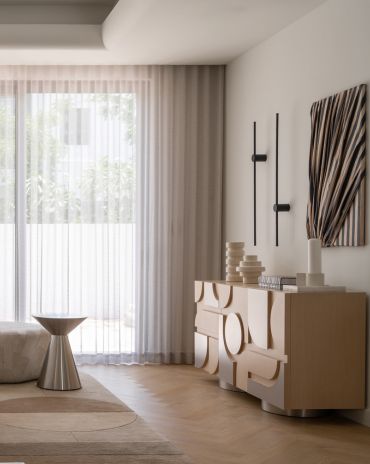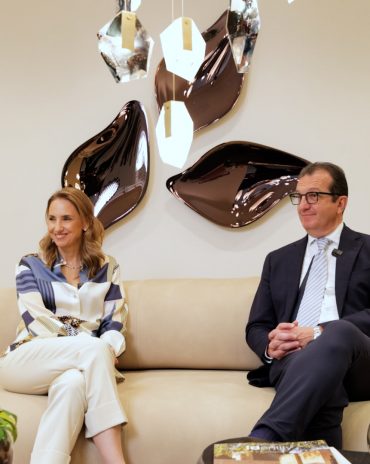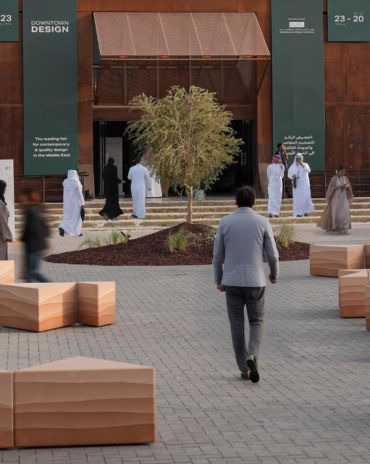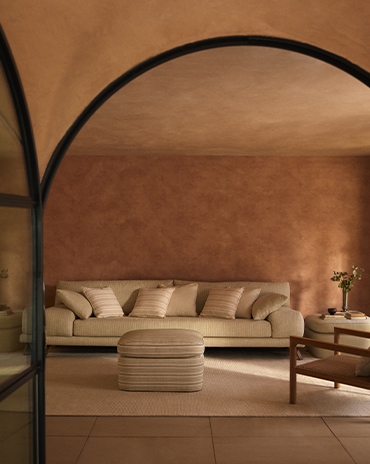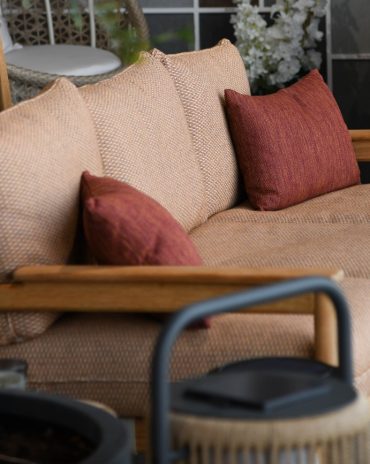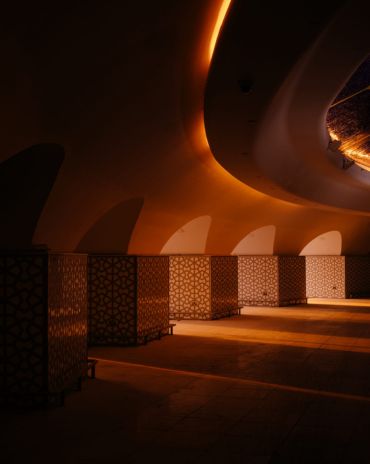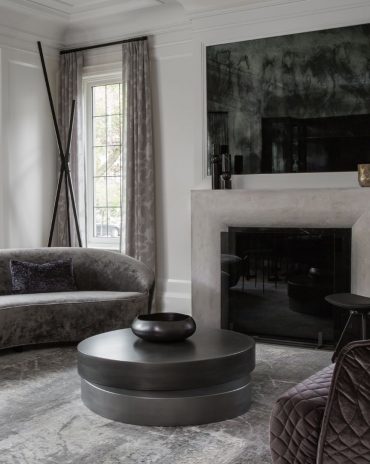Copyright © 2025 Motivate Media Group. All rights reserved.
Full circle with Timothy Oulton
Oulton reveals Dome Home - a contemporary creative hub in south China.
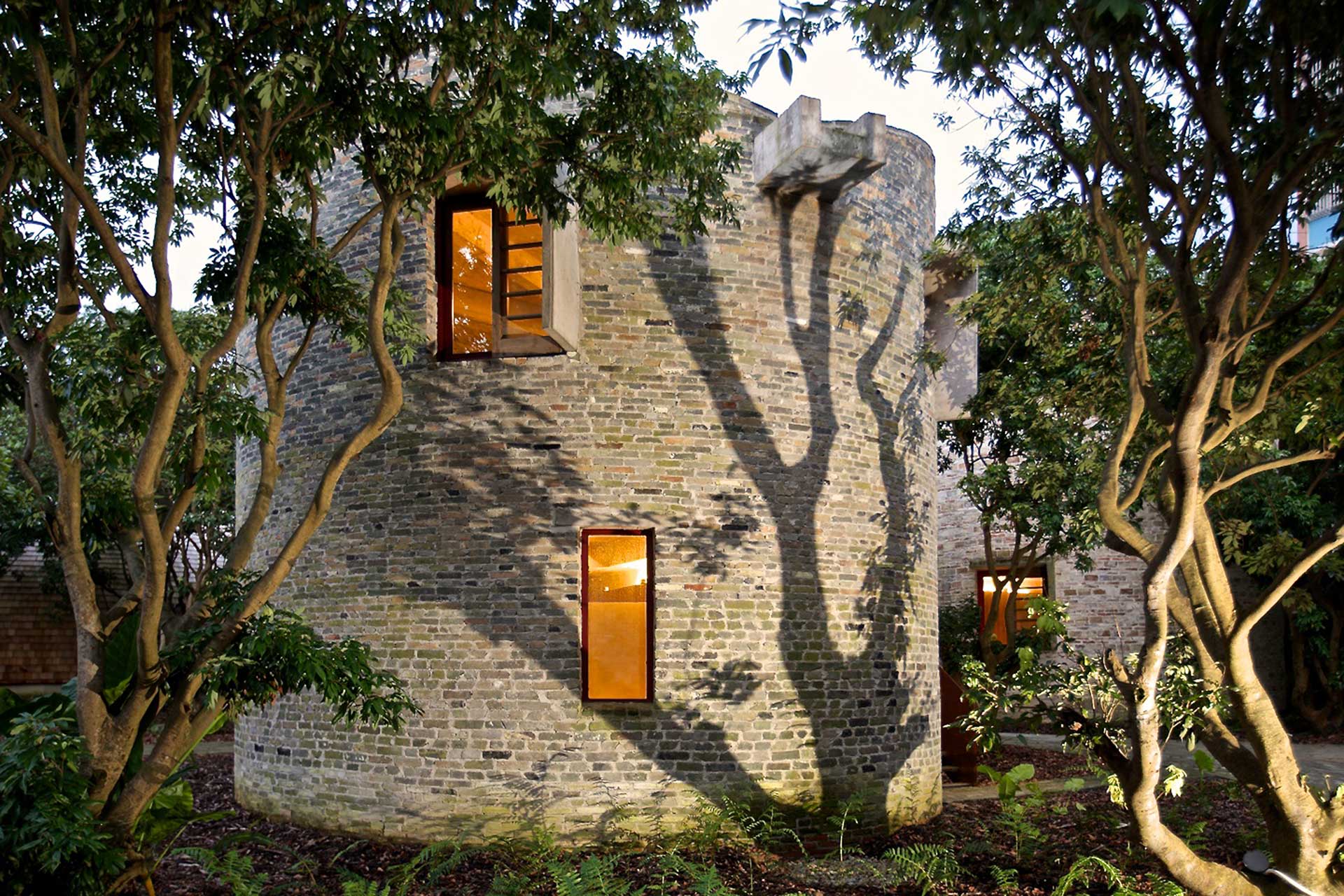
Forget the urban oasis. Timothy Oulton is once again ahead of the curve, creating an inspirational design hub for his brand’s designers: The Dome Home in Gaoming in southern China.
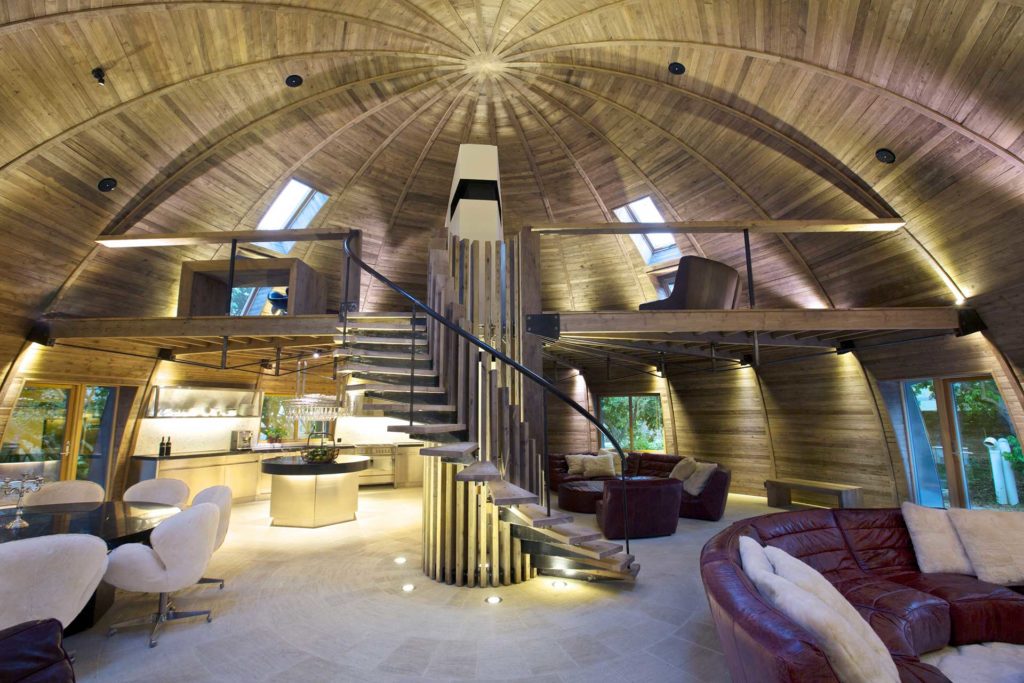
“Often, the best ideas come during down times, when people – designers – congregate and just discuss things that are not related to design; and that is what this company is trying to do,” says Simon Laws, Project Designer for the Dome Home.
This revolutionary project reflects the utmost needs of the contemporary workplace: to cultivate meaningful interaction and positive energy by using a designed environment to create physical and psychical comfort and stimulation in a collaborative setting.
“We wanted to create something beautiful, unusual, thought-out – doing it in our own way,” Oulton explains. The magnificent project is the product of Oulton’s years of planning, dreaming and insistence on impeccable craftsmanship and teamwork.
The central Dome Home and its seven surrounding Round Houses were constructed to emphasise the natural beauty of the area, and make minimal impact on the environment. Guests enter the village through a cast concrete Moon Gate, a reference to traditional Chinese architecture. They soon encounter the lychee garden through a lattice bamboo tunnel planted with fruit vines.
The design of the home feels effortless, yet solid – much like the beginnings of well-considered idea. The shell is completely self-supporting, free from columns or pillars, and the whole structure has been created using FSC-certified timber. It is also built to German Passive House standards, the highest in the world.
This ultra-low energy building incorporates triple glazing on the windows and doors, which have been imported from Europe. Each component lines up perfectly, keeping the structure exceptionally watertight and highly insulated. Minimal energy is required to power all of the lights in the building – the equivalent of boiling a kettle.
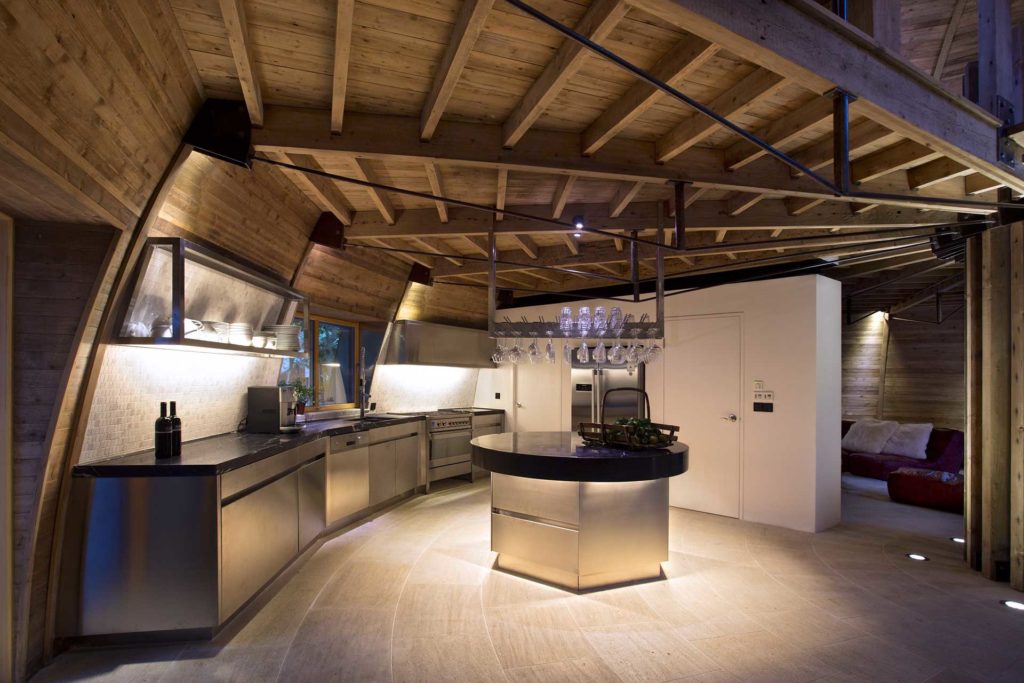
As one might imagine given Oulton’s gravitas in the world of product design, the customised furnishings are seamlessly integrated into the expansive environments. Their curved lines echo the rounded dome of the building, with the aim of allowing ideas in the mind to float around without obstruction.
In the spirit of embracing the past with a modern and singular edge, Oulton’s Shabby sofa has been reinvented with soft curves, and the stainless steel and marble kitchen has been designed to hug the curved wall. His Crossfire dining chairs, which circle a custom-made round marble table, are upholstered in the designer’s Baa Baa sheep’s wool.

British designer Timothy Oulton
But, as with any masterpiece, the project was not without challenges.
“The biggest challenge was the precision engineering required,” Oulton explains. Fittingly, to ensure everything flowed properly, there needed to be a collaboration between the UK specialist company employed to focus on the construction design and the Chinese interior designers.
Solid timber structures are rare in southern China so the local building contractor had several challenges to overcome. Eighty pre-fabricated timber panels of four different types were made with the greatest accuracy in order to fit together seamlessly.
“The Dome Home is really about people,” says Oulton. “To create this space where designers can actually get together and interact is something very special. Being in a relaxed ambience liberates the imagination and allows ideas to emerge.”
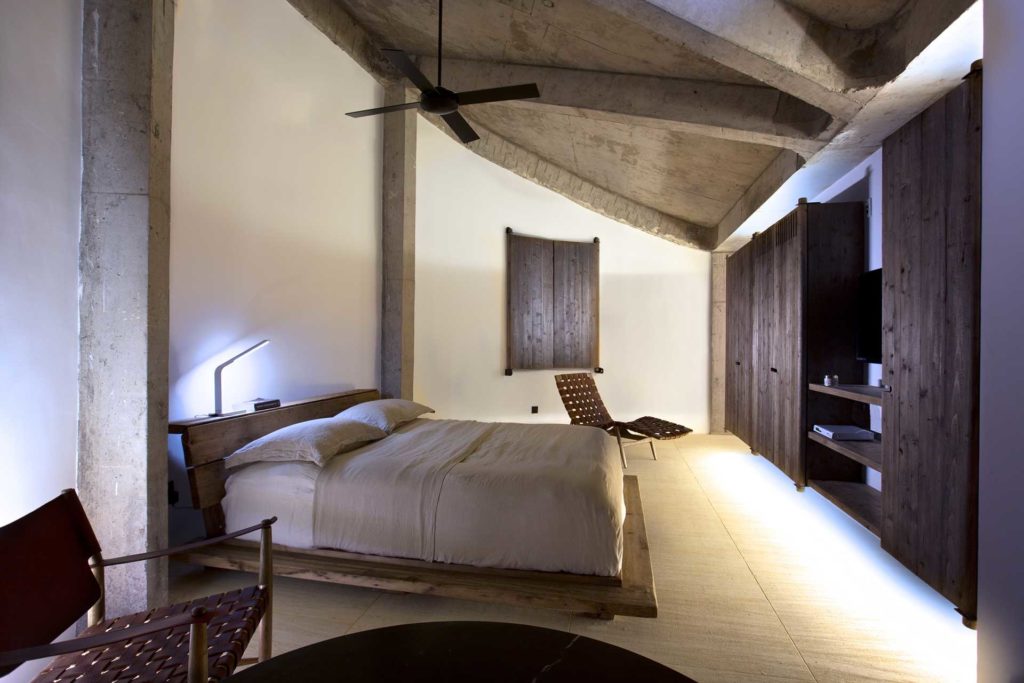
The village of Round Houses equally speaks to his sincere quest for a fluid design community. Paths lead from the central timber Dome Home to the seven double-storey brick-built houses, which function both as the primary spaces for the design staff to entertain and as guest homes for their international visitors.
As with the main house, these features reclaimed bricks, and timber has been recycled from a local village and used with precision engineering to provide sustainable buildings. Similar curves can be seen in their paths and staircases.
Even the natural environment is inviting and interactive. The garden is planted with lush edible ferns and vegetable beds, and wastewater from the buildings is treated onsite with a reed-bed sewerage system and then re-used to water the orchards. A gym and laundry are housed in repurposed old structures.
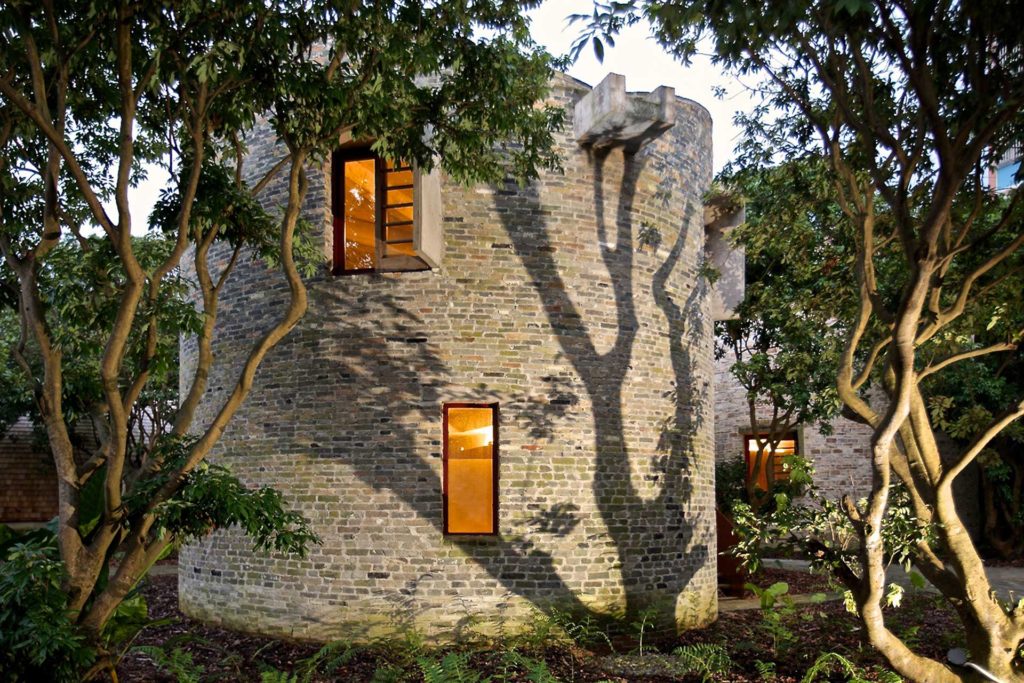
“The village has been built to bring this eclectic mix of talent and personalities together in a comforting and creative environment deep in the middle of nature,” says Oulton. “Simple, organic design proves there is beauty in simplicity.”
A selection of Oulton’s boundary-pushing furniture is available at Marina Home, which opened its custom-built flagship store across the road from its iconic Al Barsha warehouse showroom.
The Latest
The Edge of Calm
This home in Dubai Hills Estate balances sculptural minimalism with everyday ease
In conversation with Karine Obegi and Mauro Nastri
We caught up with Karine Obegi, CEO of OBEGI Home and Mauro Nastri, Global Export Manager of Italian brand Porada, at their collaborative stand in Downtown Design.
An interview with Huda Lighting at Downtown Design
During Downtown Design, we interviewed the team at Huda Lighting in addition to designers Tom Dixon and Lee Broom.
Downtown Design Returns to Riyadh in 2026
The fair will run its second edition at JAX District
Design Dialogues with KOHLER
We discussed the concept of 'Sustainable Futures' with Inge Moore of Muza Lab and Rakan Jandali at KCA International.
Design Dialogues with Ideal Standard x Villeroy & Boch
During Dubai Design Week 2025, identity held a panel at the Ideal Standard x Villeroy & Boch showroom in City Walk, on shaping experiences for hospitality.
A Touch of Luxury
Here’s how you can bring both sophistication and style to every room
Outdoor Living, Redefined
Messara Living and Vincent Sheppard Unveil “Outdoor at Its Best 2026”
NOMAD Opens Its Doors in Abu Dhabi’s Iconic Terminal 1
A modernist landmark is reimagined as a global stage for collectible design, contemporary art, and cultural dialogue.
In photos: Winners at the identity Design Awards 2025
Presenting the winners of 2025 identity Design Awards.
Identity Design Awards 2025 – Winner’s List
Here are the winners of the identity design awards 2025
Hogg’s Hollow
Set along the bend of a quiet river and sheltered within a mature, tree-lined enclave of Toronto, this riverside residence offers a dialogue between structure and softness, restraint and warmth



